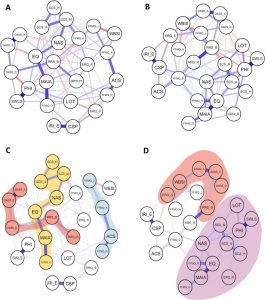Therapeutic Alliance is Important for Mindfulness Training to Improve the Psychological Health of Cancer Patients
By John M. de Castro, Ph.D.
“Both face-to-face and internet-based mindfulness-based cognitive therapy (MBCT) reduced psychological distress compared with usual care in patients with cancer.” – Matthew Stenger
Receiving a diagnosis of cancer has a huge impact on most people. Coping with the emotions and stress of a cancer diagnosis is a challenge and there are no simple treatments for these psychological sequelae of cancer diagnosis. But cancer diagnosis is not necessarily a death sentence. Over half of the people diagnosed with cancer are still alive 10 years later and this number is rapidly increasing. It is estimated that 15 million adults and children with a history of cancer are alive in the United States today. But, surviving cancer carries with it a number of problems. “Physical, emotional, and financial hardships often persist for years after diagnosis and treatment. Cancer survivors are also at greater risk for developing second cancers and other health conditions.” National Cancer Survivors Day.
Mindfulness training has been shown to help with cancer recovery and help to alleviate many of the residual physical and psychological symptoms, including stress, sleep disturbance, and anxiety and depression. Mindfulness-Based Cognitive Therapy (MBCT) consists of mindfulness training and Cognitive Behavioral Therapy (CBT). During therapy the patient is trained to investigate and alter aberrant thought patterns underlying their reactions to cancer. It is thought that the alliance between therapist and patient that is formed during treatment is important for the effectiveness of therapy. So, it would make sense to study the effectiveness of MBCT and the therapeutic alliance on the psychological distress of cancer patients.
In today’s Research News article “Development of the Therapeutic Alliance and its Association With Internet-Based Mindfulness-Based Cognitive Therapy for Distressed Cancer Patients: Secondary Analysis of a Multicenter Randomized Controlled Trial.” (See summary below or view the full text of the study at: https://www.ncbi.nlm.nih.gov/pmc/articles/PMC6827984/), Bisseling and colleagues recruited adult cancer patients and randomly assigned them to either a wait list control condition or to receive Mindfulness-Based Cognitive Therapy (MBCT) in a group setting in 8 weekly 2.5 hour sessions with daily homework or online in 8 weekly practice sessions with therapist feedback emails. The participants were measured before and after training for anxiety, depression, mental well-being, and therapeutic alliance consisting of questions on “(1) how closely client and therapist agree on and are mutually engaged in the goals of treatment; (2) how closely client and therapist agree on how to reach the treatment goals; and (3) the degree of mutual trust, acceptance, and confidence between the client and therapist.”
Of the Mindfulness-Based Cognitive Therapy (MBCT) participants significantly more dropped out of the online version (12.1%) than the group version(5.6%). The therapeutic alliance increased significantly over the intervention and did not differ between MBCT groups. They found that relative to baseline and the wait list control group MBCT training produced significant reductions in psychological distress and increases in mental well-being. In addition, the higher the level of therapeutic alliance at week 2 of the intervention the greater the reduction in psychological distress and increase in mental well-being over the program. Finally, they found that if the therapeutic alliance was weak at week 2 then there was less improvement in psychological distress in the group version of MBCT than the online version.
These results are in line with previous findings that mindfulness training produces improves mental well-being and decreases psychological distress in cancer patients, that online mindfulness training is effective, and that therapeutic alliance is important for the effectiveness of mindfulness training. These results suggest that the development of therapeutic alliance be emphasized in mindfulness training. It is interesting that therapeutic alliance can be just as effectively developed online as in person and that it is less responsive to early low therapeutic alliance. This may explain, in part, why online mindfulness training is very effective.
So, therapeutic alliance is important for mindfulness training to improve the psychological health of cancer patients.
“mindfulness-based therapy is an effective way of treating anxiety and depression in cancer patients.” – Robert Zachariae
CMCS – Center for Mindfulness and Contemplative Studies
This and other Contemplative Studies posts are also available on Google+ https://plus.google.com/106784388191201299496/posts and on Twitter @MindfulResearch
Study Summary
Bisseling, E., Cillessen, L., Spinhoven, P., Schellekens, M., Compen, F., van der Lee, M., & Speckens, A. (2019). Development of the Therapeutic Alliance and its Association With Internet-Based Mindfulness-Based Cognitive Therapy for Distressed Cancer Patients: Secondary Analysis of a Multicenter Randomized Controlled Trial. Journal of medical Internet research, 21(10), e14065. doi:10.2196/14065
Abstract
Background
Mindfulness-based cognitive therapy (MBCT) is an evidence-based group-based psychological treatment in oncology, resulting in reduction of depressive and anxiety symptoms. Internet-based MBCT (eMBCT) has been found to be an effective alternative for MBCT. The therapeutic alliance (the bond between therapist and patient,) is known to have a significant impact on psychological treatment outcomes, including MBCT. A primary concern in the practice of eMBCT is whether a good therapeutic alliance can develop. Although evidence for the beneficial effect of therapist assistance on treatment outcome in internet-based interventions (IBIs) is accumulating, it is still unclear whether the therapeutic alliance is related to outcome in IBIs.
Objective
This study aimed to (1) explore whether early therapeutic alliance predicts treatment dropout in MBCT or eMBCT, (2) compare the development of the therapeutic alliance during eMBCT and MBCT, and (3) examine whether early therapeutic alliance is a predictor of the reduction of psychological distress and the increase of mental well-being at posttreatment in both conditions.
Methods
This study was part of a multicenter randomized controlled trial (n=245) on the effectiveness of MBCT or eMBCT for distressed cancer patients. The therapeutic alliance was measured at the start of week 2 (ie, early therapeutic alliance), week 5, and week 9. Outcome measures were psychological distress, measured with the Hospital Anxiety and Depression Scale, and mental well-being, measured with the Mental Health Continuum-Short Form.
Results
The strength of early therapeutic alliance did not predict treatment dropout in MBCT or eMBCT (B=−.39; P=.21). Therapeutic alliance increased over time in both conditions (F2,90=16.46; Wilks λ=0.732; P<.001). This increase did not differ between eMBCT and MBCT (F1,91=0.114; P=.74). Therapeutic alliance at week 2 predicted a decrease in psychological distress (B=−.12; t 114=−2.656; P=.01) and an increase in mental well-being (B=.23; t 113=2.651; P=.01) at posttreatment. The relationship with reduction of psychological distress differed between treatments: a weaker early therapeutic alliance predicted higher psychological distress at posttreatment in MBCT but not in eMBCT (B=.22; t 113=2.261; P=.03).
Conclusions
A therapeutic alliance can develop in both eMBCT and MBCT. Findings revealed that the strength of early alliance did not predict treatment dropout. Furthermore, the level of therapeutic alliance predicted reduced psychological distress and increased mental well-being at posttreatment in both conditions. Interestingly, the strength of therapeutic alliance appeared to be more related to treatment outcome in group-based MBCT than in eMBCT.
https://www.ncbi.nlm.nih.gov/pmc/articles/PMC6827984/









